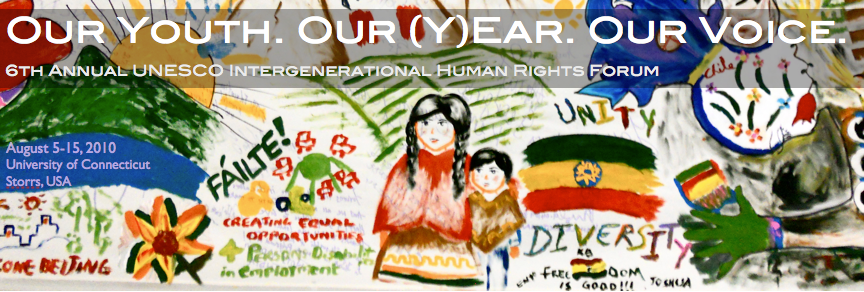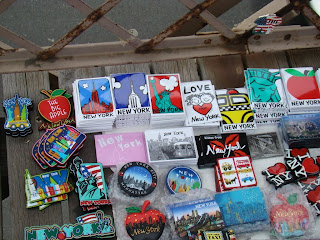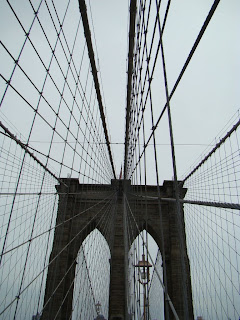 We left UCONN really early in the morning in two buses that took us to New York to live what would be a great experience. Once at the UN the almost 100 participants, facilitators and staff in the group were received by UN employees who kindly showed us the free spots we had in almost the front lines at the General Assembly Hall. For most of us it was the first time in our lives to have the chance to actually step into that room...it was so exciting!!
We left UCONN really early in the morning in two buses that took us to New York to live what would be a great experience. Once at the UN the almost 100 participants, facilitators and staff in the group were received by UN employees who kindly showed us the free spots we had in almost the front lines at the General Assembly Hall. For most of us it was the first time in our lives to have the chance to actually step into that room...it was so exciting!!As the organizers set everything up for the coming event, many of the group had the chance to jump on the very real podium of the Hall and take pictures. So many world leaders had the chance to speak in there now it was our chance!
At 10 am, the ceremony of the Global Launch of the International Year of Youth commenced, with the presence of the Secretary-General of the United Nations, Ban Ki-Moon.
Chris Bashinelli, the very young executive director of Bridge the Gap, was the master of ceremony, inviting in and out of the stage to all the multiple and very interesting speakers that had a space in the agenda of the event.
The ceremony started with a musical performance of the pop band "The Bonde", who ended up making everyone in the Hall dance and clap, Ban Ki-Moon included. The Secretary General followed, announcing the main topic of this year for youth, which is "Dialogue and Mutual Understanding". In his speech he encouraged all the young people in the room to "engage with the world and be a global citizen".
"Please help us spread the word, promote new ways to engage people"...
"I want to make sure that the torch we pass to new generations is a torch of peace"...
Many other inspiring speeches followed, spoke by young and not-that-young people such us Maya Saoud, Samir Laabidi, Modeste Kéréku, Jean-Francis Régis Zinsou, Sha Zukang, Thoraya Obaid, Jane Stewart, Monique Coleman, which were interspersed with the videos "Voices from Emergencies" from Youth Zones, "Making Room" and "Diversity makes the world colorful":
Hereby some other images and quotes of a wonderful morning...
"For every issue there´s at least one young person with one project or one idea"...
"It´s not only about having potential but live out our potential, starting by small acts that can turn into huge things"...
"Any country only has its future through the opportunities it opens to its youth"... (Minister Kéréku)
Mairam Williamson was quoted by Monique Coleman:
“Our deepest fear is not that we are inadequate. Our deepest fear is that we are powerful beyond measure. It is our light, not our darkness that most frightens us. We ask ourselves, Who am I to be brilliant, gorgeous, talented, fabulous? Actually, who are you not to be? You are a child of God. Your playing small does not serve the world. There is nothing enlightened about shrinking so that other people won't feel insecure around you. We are all meant to shine, as children do. We were born to make manifest the glory of God that is within us. It's not just in some of us; it's in everyone. And as we let our own light shine, we unconsciously give other people permission to do the same. As we are liberated from our own fear, our presence automatically liberates others.”


































